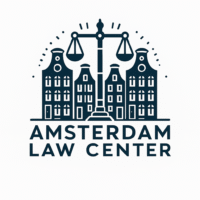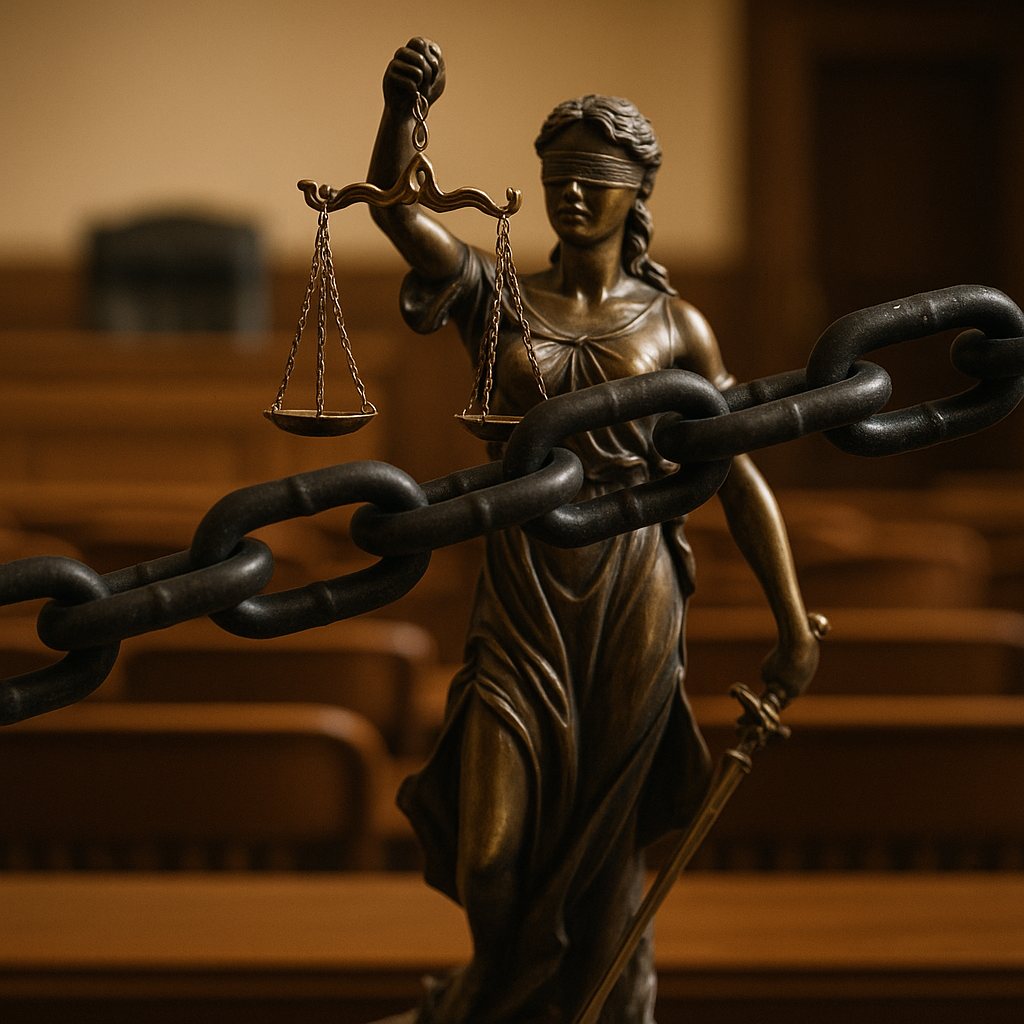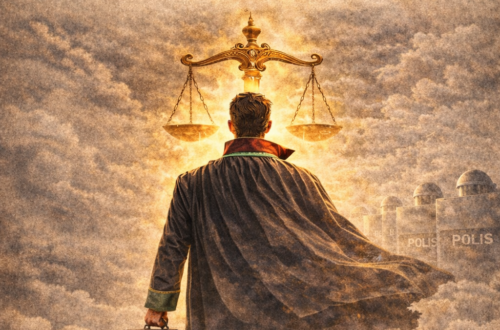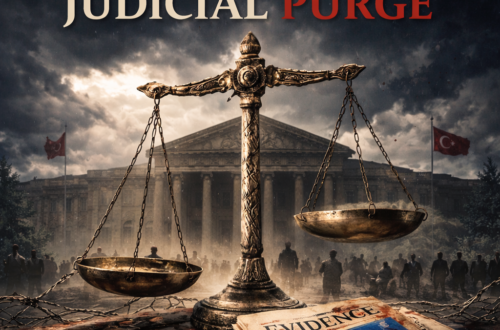The right to defense is the right of a person accused of a crime to defend themselves against the accusations, to present evidence, and to receive legal assistance. This right is constitutionally guaranteed and is recognized as a fundamental element of the right to a fair trial.
In the aftermath of the July 15, 2016 coup attempt, the practices of judges and law enforcement officials, along with statutory decrees (KHKs) issued during the State of Emergency (OHAL), have severely restricted the right to defense for individuals prosecuted for alleged affiliation with the Hizmet Movement. During this period, constitutional, Criminal Procedure Code (CMK), and international safeguards for the right to defense were violated, leading to systematic rights violations in practice. As a result of these restrictions, which effectively abolished the right to defense, hundreds of thousands of people were unable to properly defend themselves against the charges, and were subjected to torture, convictions, and prolonged detention.
The Right to Defense in Our Laws
The indispensability and inviolability of the legal profession and the right to defense are guaranteed by our laws, and a brief explanation is provided below.
Attorneyship Law
Article 1: The Nature of Attorneyship: Attorneyship is a public service and a free profession. The attorney freely represents the independent defense, which is a founding element of the judiciary.
Purpose of Attorneyship: Article 2 – The purpose of attorneyship is to ensure that legal relations are regulated and all kinds of legal issues and disputes are resolved in accordance with justice and equity, and that legal rules are fully applied before all levels of judicial organs, arbitrators, official and private individuals, boards, and institutions. For this purpose, the attorney devotes their legal knowledge and experience to the service of justice and the benefit of individuals.
Judicial bodies, law enforcement authorities, other public institutions and organizations, public economic enterprises, private and public banks, notaries, insurance companies, and foundations are required to assist attorneys in the performance of their duties. Without prejudice to special provisions in their laws, these institutions are obliged to provide attorneys with access to the information and documents they need.
Turkish Penal Code
Article 6/1-d defines the defense counsel (attorney) as a key element of the trial and as performing a judicial function. However, as will be explained below, statutory decrees have rendered the exercise of this judicial function ineffective.
Constitution
Article 36: “Everyone has the right to claim and defend their rights before judicial authorities by lawful means.”
Article 19: “A person who is detained or arrested has the right to be informed of the reasons for their detention and to receive assistance from counsel.”
Article 13: Rights and freedoms can only be restricted proportionally and by law.
Article 15: Even during a state of emergency, core rights cannot be interfered with, nor can disproportionate restrictions be imposed.
European Convention on Human Rights
Article 6/1: “Everyone has the right to a fair and public hearing within a reasonable time by an independent and impartial tribunal.”
Article 6/3-b,c: The accused must have adequate time and facilities for the preparation of their defense and to communicate freely with their lawyer.
Article 5/4: A detainee has the right to request release and to have this decision reviewed speedily.
RESTRICTION OF DEFENSE UNDER THE STATE OF EMERGENCY STATUTORY DECREES
Legal regulations enacted after July 15, 2016, imposed restrictions on the right to defense specifically concerning terrorism-related charges against alleged members of the Hizmet Movement. With these regulations, the rights of those accused of terrorism—from the process of search and seizure, detention at police stations, taking of statements, to arrest and conviction—were either abolished or restricted to the extent that they were rendered ineffective. The legal regulations introduced through State of Emergency Decrees (KHKs) are examined below.
Decree Law No. 667
Investigation and Prosecution Procedures
Article 6 – (1) For crimes defined in the Fourth, Fifth, Sixth, and Seventh Chapters of the Second Book of the Turkish Penal Code, for crimes within the scope of the Anti-Terror Law, and for crimes committed collectively, during the continuation of the state of emergency:
a) The period of detention cannot exceed thirty days, excluding the time required to bring the suspect before the nearest judge or court.
c) Statements of all suspects, victims, and witnesses, regardless of rank or title, including public officials, may be taken by judicial law enforcement officers during the investigation.
d) In cases where the safety of society or the penal institution is at risk, or when there is a possibility of the transmission of secret, open, or coded messages by terrorist or other criminal organizations, attorney-client meetings may be recorded by audio or video upon the prosecutor’s decision, an officer may be present during the meetings, documents exchanged may be confiscated, or meetings may be restricted. If it is found that the meeting serves the specified purpose, it may be terminated and documented accordingly. If a record is taken, the suspect’s meetings with their attorney can be banned by the court upon the prosecutor’s request. The relevant bar is notified for the assignment of a new attorney, which can also be objected to by the prosecutor. Attorneys assigned in this manner are paid in accordance with the relevant law.
g) In investigations, the defense counsel chosen by the suspect or assigned by the court can be banned from representation if under investigation or prosecution for these crimes. The court rules on the prosecutor’s request for such a ban.
ğ) During investigations and trials, a maximum of three attorneys may be present at the interrogation or hearings.
h) Before the trial begins, the indictment or the document replacing the indictment is read or summarized.
ı) Reviews of detention, objections to detention, and requests for release may be decided based on the case file.
i) When deemed appropriate by the court, interrogations or hearings may be conducted by audio-visual communication methods.
As can be seen, the detention period was extended to thirty days, leading to arbitrary detentions and exposing suspects to torture. Attorney-client meetings were practically banned or subjected to very strict rules, the confidentiality of these meetings was lifted, documents and meetings related to defense were criminalized, and the profession of attorneyship was effectively abolished in this respect. Meetings were recorded, and attorneys were pressured not to fulfill their duties.
In the trial phase, the requirement for the indictment to be read to the defendant was removed, blocking the accused’s access to the details of the accusations and evidence.
Decree Law No. 668
Article 3 – (1)
During the state of emergency;
i) Searches and seizures in attorneys’ offices may be conducted by judicial police officers with a judge’s decision or, in urgent cases, with a written order of the public prosecutor, without the prosecutor being present. The bar president or a representative must be present, but the protections in Articles 130(2)-(3) of the CMK do not apply.
Normally, Article 130 of the CMK strictly safeguards searches and seizures in attorneys’ offices, including the requirement of a judge’s order and the bar president’s presence, and prevents the examination or seizure of documents unrelated to the crime. The State of Emergency Decree bypassed these protections. Now, offices could be searched without a judge’s decision, only with a prosecutor’s written order, and without the prosecutor’s presence.
The most significant issue here is that the names of the attorneys to be searched are predetermined, making this a threatening legal regulation against attorneys. The independence of attorneys and the confidentiality of defense-related documents have been undermined.
l) The defense counsel’s right to examine the file or obtain copies of documents may be restricted by the prosecutor if it could jeopardize the purpose of the investigation.
Normally, Article 153 of the CMK guarantees the defense counsel’s right to examine the file and obtain copies. However, this provision gives the prosecutor broad discretion to restrict this right, making it difficult for the defense to prepare and access information. In practice, restriction decisions have been made in nearly all cases.
m) The detainee’s right to meet with their lawyer may be restricted by the prosecutor for five days, during which no statement can be taken.
This is one of the most severe restrictions. The right to meet with counsel while in custody is absolute. This regulation grants the prosecutor the authority to prevent the detainee from seeing their lawyer for five days. In practice, detainees were left without legal assistance for five days, subjected to intimidation, threats, and coerced into confessions, often under torture.
Decree Law No. 676
Article 1: In cases of offenses committed within the scope of organized crime, no more than three defense attorneys may be present at the hearing.
There is no such restriction in the CMK. This regulation specifically limits the defense team’s size in cases of terrorism and organized crime, hindering collective defense and restricting the accused’s access to a larger defense team.
Article 2: Amendments to Article 151 of the CMK broaden the conditions for the banning of attorneys from defense duties, making it applicable not only to detained defendants but also to suspects and those under investigation, even if a final decision has not been reached.
As a result, it has become easier and broader to ban attorneys. Judicial oversight of the banning process has been weakened, and the right to defense has been eroded. Furthermore, banning an attorney from defense solely because they are under investigation for a similar offense violates the presumption of innocence and the prohibition of discrimination.
Article 3: In crimes defined in the relevant sections of the Penal Code and Anti-Terror Law, the right of a detainee to meet with their lawyer may be restricted for twenty-four hours by a judge’s decision, during which no statement can be taken.
Although more limited in scope and requiring a judge’s order, as opposed to the previous five-day restriction by prosecutor’s order, the possibility of being left without a lawyer for the first 24 hours increases the risk of torture and weakens the defense.
Article 4: “Requests made solely to prolong the case may be rejected.”
This nearly abolishes the role of defense counsel. The law now enables the court to reject any and all requests for witnesses, expert reports, or official documents, with no specific limitations. In politically motivated courts, this means any request that could exonerate the accused or undermine the conviction can be denied.
Article 5: “If the defense counsel leaves the hearing without excuse, the hearing may continue.”
Previously, if the counsel left without an excuse, the hearing would be postponed until a new attorney was appointed. Now, proceedings can continue without a defense, effectively nullifying the role of counsel.
Article 6: Amendments to the Law on Execution of Sentences enable the monitoring, recording, and restriction of attorney-client meetings, and allow for the banning of meetings with an attorney for up to six months, based on broad security justifications.
As a result, the institution of advocacy, which is the essential component of the right to defense, has been effectively abolished by State of Emergency Decrees. Attorneys have been subjected to numerous threats and pressures in the course of their professional duties, and the courts have been given powers to arbitrarily disregard their requests. According to the latest statistics from the Ministry of Justice, investigations have been opened against 390,000 people for terrorism. Those accused within the scope of the Hizmet Movement have been deprived of legal assistance and the right to defense, leading to trials that overwhelmingly resulted in convictions. Moreover, they have been rendered incapable of effectively seeking redress for torture and other rights violations.
It is our firm belief that trials conducted without effective defense counsel are legally null and void, and that, sooner or later, justice will prevail and these unlawful decisions will be overturned. Until the day justice is restored and the institution of advocacy regains its rightful place, our legal and human rights struggle will continue.
Amsterdam Law Center






